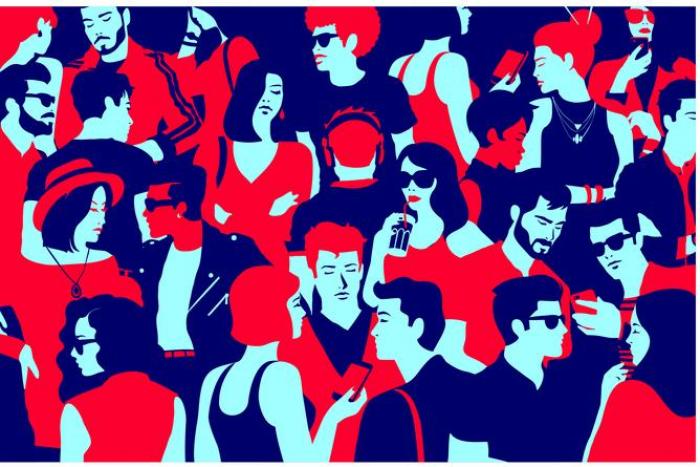
Course not currently available
Master of Fashion Futures: Smart Skins and Wearable Technology
Master
In Madrid ()
*Indicative price
Original amount in EUR:
15,200 €

Merge designs, fashion and environments through textile and technology industries.
-
Type
Master
-
Duration
1 Year
-
Credits
60
Would yo like to take a step further in your career? Are you intereted in new trends and wearable technology? The master of master futures: Snart Skins and Wearable Technology might be just what you are looking for to specialize yourself.
Learn it all about new textiles and make them interact as you merge styles and environments. Create new materials and use smart ideas with the advice of the best professionals in the fashion and technology fields.
Contact IED institute through Emagister.co.uk and learn it all about design and fashion!
Under the concept of New Skins, we address the use of textiles at different scales, which may be applied from the scale of the object, to the human body, to rooms or even an architectural façade.
This course responds to the current need in design to create increasingly interdisciplinary work teams. Throughout this master, you will learn about three key areas for achieving an advanced and up-to-date use of textiles in your projects.
About this course
Create new non-standardised specific solutions to particular problems.
Gain a broad vision of current technology processes applied to textiles.
Work on your designs with complex geometries and virtual simulations.
Control a digital workflow in both the design and the production of your projects.
Equip textiles with smart behaviours using soft electronics and programming.
Make textiles interact with their immediate environment and the people who wear them.
Ability to discretise new materials and create new materials.
Fashion and product designer, architects, designers interested in implementing soft material skills in their disciplines
CV / Motivation Letter / Portfolio (no greater than 3MB) / Personal Interview, if deemed appropriate by the teaching coordinator
Private Private accreditation at the end of the course. (Mandatory Attendance)
With a wide range of training courses in the areas of fashion design, product design, interior design, visual arts, communications and management, it has three spaces in the city, and is the largest Design Campus in Madrid. Its classrooms, especially designed to accommodate the different specialties of our courses in design,
fashion, visual arts and communication, have a library, multimedia laboratories, classrooms for 3D design, fashion workshops with sewing machines, knitting machines, mannequins, irons and modelmaking laboratories in which to produce models and prototypes, plus two photographic studios (130m2) with natural and artificial lighting and three cycloramas. In addition to specially designed classrooms that accommodate the different disciplines in our courses in design, fashion, visual arts and communications,
the IED Madrid offers facilities such as a screen printing and jewellery workshop, the Lightlab, an analogue black and white processing lab, a workshop for traditional printing techniques with a Riso machine, a Trotec laser cutter, a 3D printer, a fabric
analysis lab with microscopes, scales, drying oven and a colour assessment booth, a room for computerassisted patterns and a plotter to print designs, among other high-tech equipment. Our experience, spanning more than 20 years, has resulted in an innovative and unique academic model that trains design professionals who are able to adapt to a changing society
Reviews
Subjects
- Market
- Design
- Materials Engineering
- Design techniques
- 3d training
- Materials
- Textile Design
- 3D
- Project
- Technology
- Materials Management
- Material Technology
- Prototyping
- Fabrics
- Textiles
- Design Management
- Industrial design
- Design fundamentals
- Textile Culture
- Materials Typology
Course programme
Theoretical module that delves into the relationship between various disciplines, such as design, fashion and architecture. The goal of this module is to demonstrate that the principles of textile design can be applied to different scales and areas through one single tool or process, such as modularity or generative structures. The development of this module is presented as the common thread running through the entire master, such that throughout the course students will study projects relating to the different areas of the master: geometries, behaviours and materials. At the same time, this module guides students in the performance of the projects that will be developed in the other more experimental modules.
MODULE 2 Digital
Design & Simulation
In this module, you will learn not only the tools needed for 3D modelling and parametric design, but also the most appropriate workflows for taking full advantage of the potential of digital prototyping. Through various plug-ins, concepts that are very present in current design, such as topology, form-finding, fractals and repetitive patterns etc. will be applied.
- 2D vector drawing in Rhino
- 3D modelling in Rhino
- Modelling by surface subdivision with TSplines
- Parametric design with Grasshopper
- Real-time physics simulation with plug-ins such as Kangaroo
- Topological mesh transformation and editing with plug-ins such as Weavebird – Workshop: generative natures
Digital Fabrication & Prototyping
Working directly with the digital prototyping machines at the Fab Lab IED Madrid, you will learn to select manufacturing processes and apply them to the development of prototypes. You will be able to optimise your designs and explore new shapes and geometries, taking advantage of the digital workflow between computer design and digital manufacturing.
- CAD-CAM digital workflow
- Digital prototyping and manufacturing processes
- Laser cutting on textiles
- 3D scanner and digitisation
- 3D printing
- Workshop: prototype design and manufacturing
In this module, you will research and work with flexible electronics integrated into textiles to make it possible to add controlled behaviour and interactivity with their immediate environment. The textile becomes a soft interface able to gather information and transform itself. You will learn open tools in order to make and integrate soft sensors, circuits and actuators.
- Principles of electronics to learn how to design circuits integrated into textiles
- Working with conductive materials: threads, fabrics, conductive inks, flexible substrates and self-manufactured materials
- Working with sensors so the textile will interact with bending, temperature, pressure etc
- Working with soft actuators as shape memory materials (MSA, MPP) – Workshop: e-textile
With this module, you will learn how to programme circuits so that the textiles will acquire more complex interactive behaviours. Based mainly around the Arduino ecosystem, the textiles will be able to collect information on their environment through sensors integrated into the textile and convert this into specific actions by means of actuators that will make it possible to transform the textile in a controlled manner (memory of shape, colour light etc.).
- Arduino language and environment
- Digital and analogue inputs through soft sensors
- Digital and analogue outputs through actuators (displays, capacitive sensors, etc.)
- Time Management and use of libraries
- Communication protocols (serial and wireless)
- Physical computing
- Workshop: textile interaction
- Internet of Things (IoT) and home automation
- Workshop: wearables
This module provides a theoretical and technical foundation on the conformation of fabrics, their materials and manufacturing processes. Study of current technological fabrics that open multiple possibilities in their application to textiles and the creation of new soft materials.
- Study of textile raw materials and their properties
- Types of Fabrics. Processes for obtaining fibre and machines used in generating fabrics
- Threads and spinning, fabrics and textile finishes
- Smart fabrics and their current applications
- Workshop: Project for a smart textile skin with a specific application
This module offers workshop experimentation with new materials that make it possible to generate innovative soft materials. This involves incorporating materials taken from other disciplines and transforming them, modulating them, mixing them with other materials and applying different techniques to them to allow new materials to be generated.
- Study of processes of adapting soft materials to different scales, modularity, origami, blending with other materials, generative structures etc.
- Experimentation with new materials and techniques
- Adaptation and transformation of materials brought from other disciplines to generate new skins: insulating films, plastics, composites, resins, wood, laminates, metal mesh, etc.
- Manufacturing the tools, processes, moulds and machines necessary to generate our own skins using the technology of the Fab Lab
- Manufacturing new textiles using synthetic biology: bio-textiles, bio-plastics, bio-resins, biosilicones
- Workshop: creation of new materials
- Workshop: Interaction and manufacturing
In this module, which is common to the other Innovation Lab masters, you will learn about coordination and market insertion of a project, from tools for collaboration and dissemination up to cost calculation and authorship management. Everything you need to launch a product onto the market, risk management and cost control. You’ll also learn concepts of sustainability that will help you to develop your products in a responsible and global manner. – Project methodology and development
- Work management and dissemination tools (version and web control)
- User experience and moving from the project to the product
- Start-ups and placing a product on the market
- Cost control (production / distribution / marketing)
- Patents, copyrights, and open source projects
- Implementation of sustainable design systems; modulability, minimal seam, zero waste
- Implementation of sustainable production system and process: circular fashion, DIY, traceability, open-source
In the final project you will put to the test all the knowledge acquired during the master, with a comprehensive development of the project from its conceptual foundation to a fully operational design, on a formal and mechanical level, which you yourself will have designed, prototyped and programmed under the supervision and tutelage of the faculty. During the final project you will work your way across all of the aspects learned in the different modules, concentrating them into one single project with a high level of experimentation and development, and thus consolidate the knowledge received over the course.
Master of Fashion Futures: Smart Skins and Wearable Technology
*Indicative price
Original amount in EUR:
15,200 €


